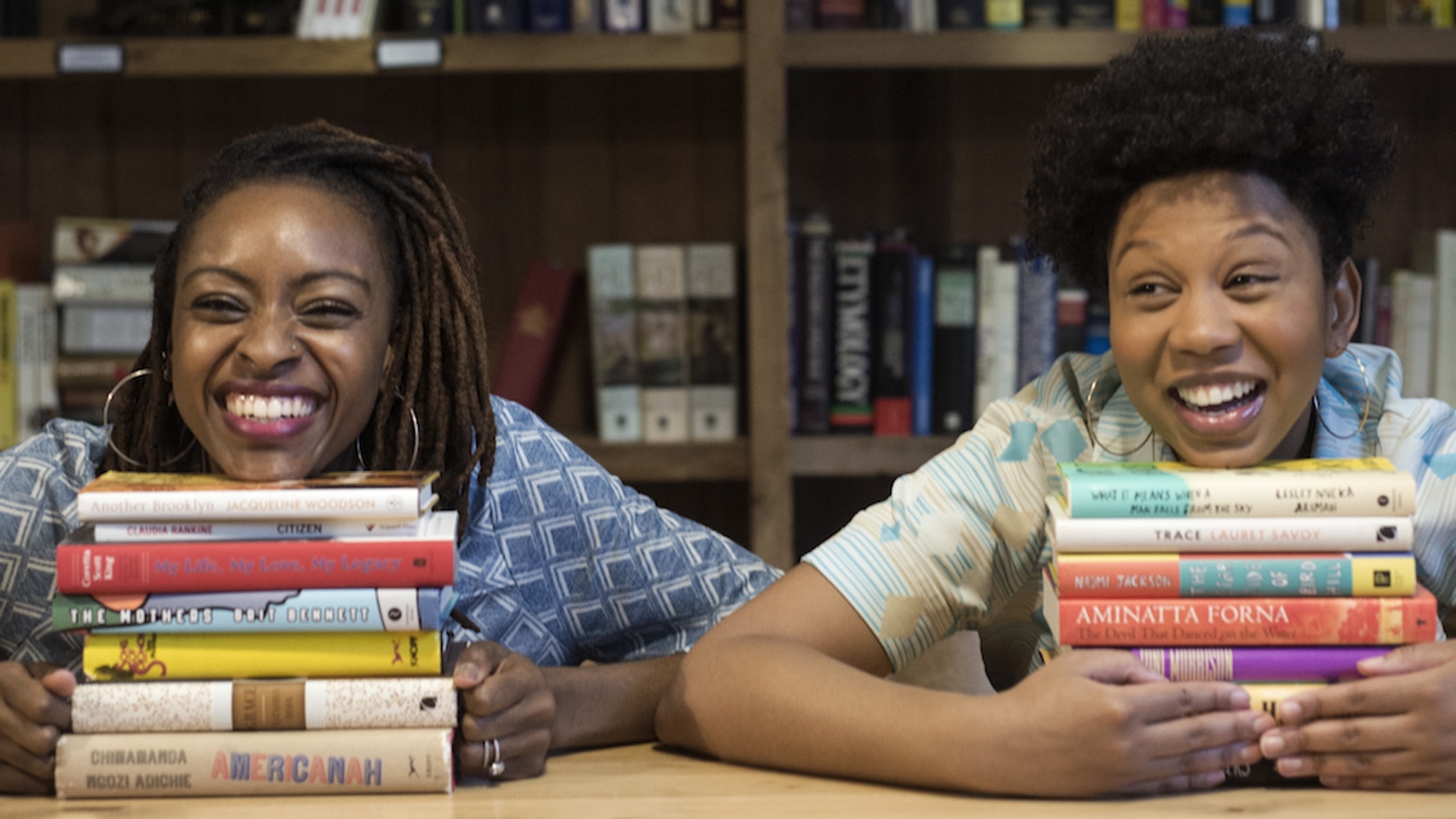In New York City an intriguing conversation can start anywhere and be based on anything. In Glory Edim’s case, a t-shirt she wore, which listed of some of her favorite authors and said “Well-Read Black Girl,” started what has now become the Well-Read Black Girl Book Club.
Photo: Twitter
"I would be wearing the T-shirt in public spaces in New York City," Edim told NPR. "And as you know, we tend to be in close proximity to each other all the time. So sitting on the subway talking to people, and black women coming up to me and asking me about where I got the T-shirt, who my favorite author was — it just started these very natural conversations."
A gift Edim wore proudly from her partner soon launched into a collective of black women writers and readers discussing works that spoke to them. As the group grew, Edim began inviting authors to have group discussions about their books and created an Instagram account which now hosts a following of well over 154k.
Two other important items birthed from this book club were its annual literary festival and a book edited by Edim entitled Well-Read Black Girl: Finding Our Stories, Discovering Ourselves. The 2018 festival took place at Pioneer Works in Brooklyn and served as a “celebration of Black women readers and writers that seeks to initiate meaningful conversations within the literary arts.” Through panel discussions, readings, live music performances and tributes, attendees were given the opportunity to share their stories and discover new ones.
Photo: Well-Read Black Girl
The book, Well-Read Black Girl: Finding Our Stories, Discovering Ourselves, released last month, is an anthology of essays written by prominent black women who share stories about an author, character or book that helped them see themselves in literature. Pieces from Lynn Nottage, Jesmyn Ward, Gabourey Sidibe, Tayari Jones, Rebecca Walker and Barbara Smith can be found within its pages.
Edim admits when she first posed the question to those contributing, she was a bit nervous the answers would have the same focal person/story, but she was pleasantly surprised.
"Originally I thought that everyone would have a different story about Toni Morrison, which would have been incredible, but that was a little bit of the fear. Will everyone write the same story about The Bluest Eye? Will it sound repetitive? And that was not the case at all,” Edim said.
Book publicist and freelance writer, Carla Bruce-Eddings, also spoke to NPR about her experience with Well-Read Black Girl and described the initial encounter as refreshing.
"It really feels like taking a long exhale," Bruce-Eddings said. "They're very informal. We sit in a circle. And it's just such a comforting and welcoming space."
Bruce-Eddings was also given the opportunity to share her essay in the anthology, and the story she chose to highlight is Amazing Grace by Mary Hoffman.
"Grace is, ultimately, who I landed on, but it wasn't so much because I saw myself in her completely. It was because she was who I aspired to be."
PHOTO: Amazon
The main character, Grace, is described as a young girl who loves stories, and when the opportunity to play Peter Pan arises in a school play, Grace is determined to land the role. Despite being told she can’t because she was black and a girl, she was not deterred.
“I have a 3-year-old daughter right now," Bruce-Eddings began. "And when I was building her library, I realized that I'd lost my old copy of Amazing Grace, so I immediately ran out and bought another one. And as I was reading it to my daughter for the first time, tears came to my eyes because it just felt like I was home in a way, and I was realizing all these things about myself that I had made peace with. And now I was able to pass her on to my daughter."
When asked by Vanity Fair how she continues to be a community builder, Edim answered with this:
“So much of how I began my work started with one question: who are you and what inspires you? Each time someone comes to the book club or attends the festival, they are greeted, welcomed, and reminded that they belong in this space. There are too many times when, as a black person in a white space, you don’t feel like you belong, but within Well-Read Black Girl, you feel a sense of affirmation.
The larger question becomes, how can I continue to help people and be a resource and give of myself to others? If I’m being labeled a leader, then I want to lead people to a space where they can get their work published and they can find a literary agent, and they can be on the best-seller list too. This isn’t just about me and the work that I’m doing. It’s about being collaborative. And if there’s any spaces that really seek this collaboration, it’s the literary space. There would be no books to sell if we didn’t have readers.”
If you are interested in becoming a Well-Read Black Girl in-person or online, click here to learn more.
Ready. Set. Boss. Our daily email is pouring out inspiration with the latest #BlackGirlBossUp moments, tips on hair, beauty and lifestyle to get you on track to a better you! Sign up today.
